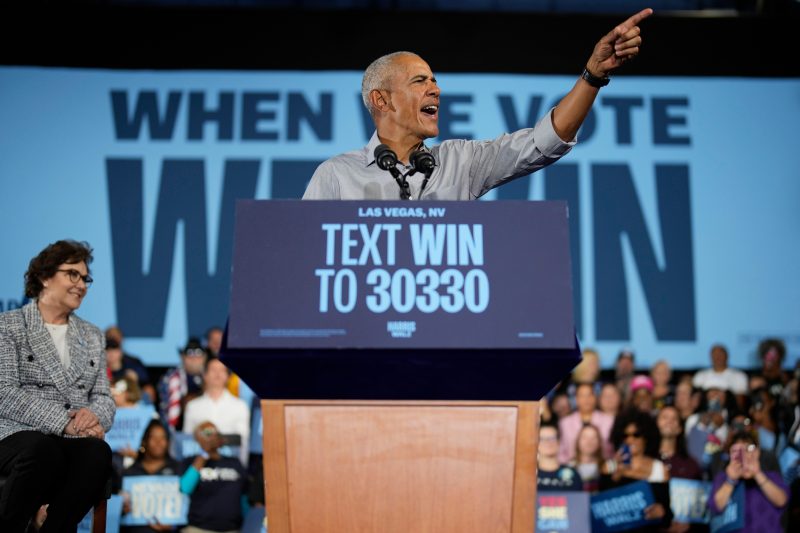In a political landscape defined by division and polarization, the role of party elders is crucial in shaping the direction and messaging of political campaigns. As Democratic icons rally in support of Vice President Kamala Harris, the GOP elders’ decision to keep their distance from former President Donald Trump highlights a stark contrast in leadership styles and priorities within the Republican Party.
The influence of prominent figures within a party can have a significant impact on voter perception and support. For the Democratic Party, the image of seasoned politicians such as former President Barack Obama and Senator Elizabeth Warren standing alongside Vice President Harris sends a clear message of unity and continuity. Their endorsement of Harris not only reinforces her credibility but also signals to voters the party’s commitment to progressive values and inclusive leadership.
In contrast, the GOP elders’ reluctance to align themselves with Trump reflects a deeper rift within the Republican Party. While Trump continues to command a loyal following among a significant portion of the party base, his divisive rhetoric and controversial actions have alienated some traditional Republicans. By keeping their distance from Trump, GOP elders are attempting to distance themselves from the more extreme elements of the party and appeal to a broader range of voters.
Another key difference between the Democratic icons and GOP elders is their approach to messaging and engagement with voters. Democratic figures such as Obama and Warren are known for their ability to inspire and mobilize supporters through their charismatic speeches and progressive policy agendas. Their active involvement in Harris’ campaign serves to energize the Democratic base and attract undecided voters by focusing on issues such as healthcare, climate change, and social justice.
On the other hand, GOP elders may be missing an opportunity to rally their base and expand their appeal by shying away from Trump’s influence. While distancing themselves from Trump may help moderate Republicans and independents feel more comfortable supporting the party, it could also risk alienating the enthusiastic Trump supporters who continue to wield significant influence within the GOP.
Ultimately, the choices made by party elders in how they engage with candidates and shape the party’s messaging can have a lasting impact on electoral outcomes. By standing by Harris and embracing her campaign, Democratic icons are sending a strong message of unity and vision for the future. In contrast, the GOP elders’ cautious approach to Trump illustrates the challenges they face in balancing loyalty to the party base with the need to appeal to a broader spectrum of voters.
As the campaign season unfolds, the decisions made by party elders on both sides will continue to shape the political landscape and influence voter attitudes. How the GOP elders navigate the complexities of Trump’s legacy and the Democratic icons leverage their influence to support Harris will be key factors in determining the outcome of the upcoming elections.

